Companies that let customer feedback drive their innovation tend to create products that are more closely aligned with market desires. And within the gaming industry, there’s no shortage of customers willing to provide feedback.
E-Sports
How Lenovo Legion built one of the world’s largest PC gaming brands
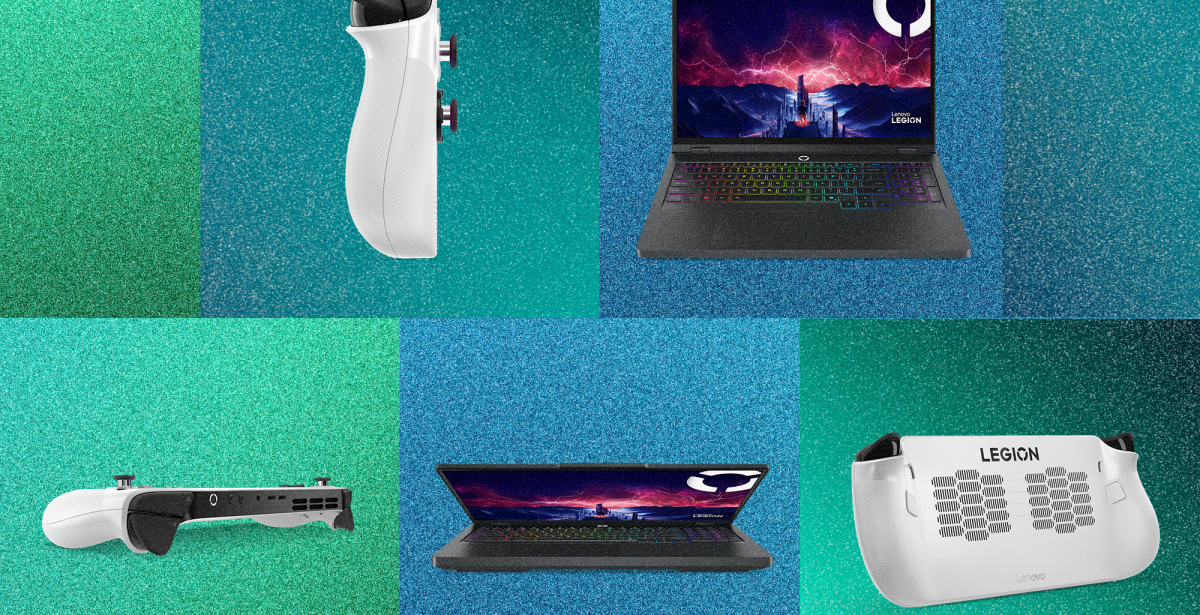
So, when Lenovo set out to build a PC gaming brand, it made a very firm commitment up front. It would invest heavily in innovation — but it would make sure that those investments were driven by what gamers truly want.
The results of that approach have come quickly. In just eight years, Lenovo Legion has become a major player in the PC gaming space, offering an extensive line of desktop computers, laptops, tablets, and handhelds developed for gaming experts and novices alike. “Lenovo ships the largest volume of PCs across the globe, with a dominant share in the gaming space,” says Volker Düring, VP & GM of PC Gaming at Lenovo. In total, the company sent off nearly 17 million PCs in the fourth quarter of 2024, making it the market share leader at 24.5 percent, according to IDC.
“This impressive growth is due to our unrelenting pursuit of delivering the best gaming devices on the planet while focusing on true innovation and differentiation,” Düring says.
Putting customers in the driver’s seat
A dialogue with customers starts two years before a Lenovo Legion device is scheduled to ship, Düring says. The team begins research and development efforts by calling on its user and customer experience groups for feedback. Lenovo gains a more holistic understanding of user behavior, price tolerances, and contributors to overall satisfaction. The data that’s collected during group sessions are put into actionable buckets — the top areas where Lenovo Legion products are winning, for instance, or key areas to direct future research.
Next comes the process of ideating and pressure-testing a wide range of innovative features and performance improvements. The winning features get implemented, and new products ship off to customers. That leads to more feedback. “We conduct exhaustive listening exercises, tracking metrics such as users’ sentiment towards their Legion device, their overall satisfaction with the brand, and how excited people are to tell their friends about Legion,” Düring says. “That last one is my personal favorite to track.”
The data is fed to product teams who iterate and improve devices, addressing new user behaviors, needs, wants, and nice-to-haves. It’s through these customer insights that Lenovo has been able to create and continuously update a range of innovative, gamer-friendly features, such as:
- Lenovo PureSight LED gaming displays: High-resolution panels with gaming-optimized specs like an immersive 16:10 aspect ratio, bezel-less design, and high refresh rates.
- Legion TrueStrike keyboards: Gaming keyboards with soft-landing switches, 100 percent anti-ghosting technology (enabling an accurate response to all keystrokes), and sub-millisecond response times.
- Legion Coldfront cooling technology: Upgraded cooling with a heat-regulating phase-change thermal compound, an expanded intelligent intake, and an upgraded fan and exhaust system.
- Lenovo Spectrum RGB support: Customizable RGB lighting for keyboards and other devices.
- Legion Space: An app that helps gamers seamlessly manage PC and in-game settings, purchase games, leverage AI to quickly edit gameplay clips for social use, and sync performance, RGB, and other settings across all their Legion devices.
The gamer-driven relationship has also helped Lenovo establish itself as a leader in AI. At a time when everyone seems to be selling the same hardware, Lenovo is differentiating by integrating AI into devices at a system level. Legion devices use Lenovo LA AI chips, the first dedicated AI chips on a gaming laptop. They also utilize AI Engine+ hardware and software, which are powered by LA AI chips to use machine learning to tune system performance. The dynamic tuning is based on the user’s scenario, meaning gamers can expect optimum performance at every turn.
Catering to novices and pros alike
Gamers come in all ages, genders, backgrounds, and levels of experience. Lenovo Legion has committed to catering to a diverse range — from the most committed aspiring esports player to the beginner. It has leveraged key partnerships to bring this commitment to bear, including collaborating with AMD for the silicon used in many of the most popular devices in the Lenovo Legion lineup.
On the esports side of the spectrum, the company has the Legion Pro series, which elevates performance for the most competitive gamers with maximum frames per second. The Legion Pro 5 offers high refresh rates, low-latency graphics with NVIDIA Reflex, and AMD processors that have been optimized for speed and endurance. It comes with an AI-powered performance boost, an enhanced cooling solution, a high-refresh OLED gaming display, and hardware that empowers high-speed gaming.
The Legion 5 — also referred to in some regions as the Legion Slim 5 — is built for the gamer who wants a single laptop to handle games and whatever else life throws at them. Powered by AMD processors, it provides AI-assisted performance that’s a step above non-gaming PCs, while offering a cool, quiet, improved performance through next-gen thermal technology. “For…STEM students who moonlight as gamers and need one laptop that can handle both those high-performance STEM apps and games, we have our Legion Series laptops,” Düring says. It’s equipped with an OLED gaming display in a compact, 15.3-inch chassis that fits comfortably into a backpack without compromising on processing power and endurance.
Increasingly, though, gamers don’t want to be confined to their laptop or desktop. According to Lenovo, its partners at Valve and Microsoft have noted that players spend more time gaming on Steam and Xbox Game Pass when they’re on handhelds versus traditional desktops. Lenovo turned to AMD as it actioned that insight, calling on the company’s Ryzen Z-series processors for the ideal mix of power and efficiency to bring Lenovo Legion’s series of handhelds to life.
Hence: the Legion Go, Lenovo’s entry to that growing market, offering AAA gaming from anywhere. The Legion Go has been integral in handhelds making the transition from niche to truly mainstream, capable of bridging the divide between casual and competitive play on the go. And Lenovo is jostling for position as the market grows.
Handhelds and the future of gaming
Lenovo’s belief in the future of handhelds stems from the increased accessibility they offer. Because they’re still in relative infancy, the technology represents “perhaps the most exciting area of growth and innovation,” Düring says.
“If you are a gamer, you know what it is like to purchase a game or two on a Steam sale, only for it to collect dust in your library because your life is quite dynamic,” he says. “Handhelds provide a solution to hectic lifestyles by letting you attack those games from the couch, plane, train — anywhere you have a place to get comfortable and get a game going.”
Of course, handhelds aren’t just about reaching new, time-strapped audiences. They’re also about providing more options for the most passionate gamers, which is why Lenovo is innovating to create a more seamless and consistent experience from desktop to handheld.

Design by Marissa Dickson
Legion Go’s first-person shooter mode, empowered by detachable Legion TrueStrike controllers, enables competitive gaming even on games that haven’t been optimized for handhelds — users simply pop off and dock one of the detachable controllers for use as a vertical mouse. That’s further proof of Lenovo’s commitment to letting customers pick their own path: While some will want to quickly load a game, play, pause, and come back later, others want the flexibility of Windows in a portable format. “It is our job to explore both and deliver compelling offerings for customers to pick their own path,” Düring says. Gaming, foundationally, will always be about having fun, he says. Lenovo’s role is simply to understand how people will have fun in the future and cater its products accordingly.
Above all, Düring’s number one message to customers is this: Lenovo Legion isn’t one-dimensional. It has broken through as a dominant player in the PC gaming space, but it’s more than its core hardware. Rather, it’s focused on bringing gaming innovation to market across its entire portfolio, from laptops to desktops, handhelds, tablets, accessories, monitors, services, and software. “Legion is not just a PC brand,” Düring says, “we are a gaming brand focused on delivering the best gaming experiences to gamers.”
Learn more about how Lenovo is changing the game with smarter technology.
E-Sports
DraftKings CEO Presents at BofA Gaming Conference

DraftKings Inc. presented at the 2025 BofA Gaming, Lodging & Leisure Conference on September 4, 2025. The presentation was led by Shaun Kelley, an analyst, and focused on the company’s performance and future prospects. The presentation was described as a keynote, but the transcript is currently in draft form.
DraftKings Inc. (DKNG) recently presented at the 2025 BofA Gaming, Lodging & Leisure Conference on September 4, 2025. The presentation, led by analyst Shaun Kelley, offered insights into the company’s performance and future prospects. Although the transcript is currently in draft form, key points from the presentation were reported to provide a comprehensive overview of DraftKings’ current state and future trajectory.
DraftKings, a digital sports entertainment and gaming company, operates across multiple states and provinces in North America. The company provides a range of products, including online sports betting (Sportsbook), online casino (iGaming), daily fantasy sports (DFS), and digital lottery services. According to the presentation, DraftKings’ Sportsbook is live in 28 states, Washington, D.C., and Ontario, Canada, while its iGaming operations are regulated in five states and Ontario, Canada. Additionally, the company’s DFS product is available in 44 states, the District of Columbia, and certain Canadian provinces [1].
The presentation highlighted DraftKings’ strategic partnerships with major sports leagues, including the NFL, NHL, PGA TOUR, WNBA, UFC, NASCAR, NBA, and MLB. These partnerships not only enhance the company’s brand but also provide a competitive edge in the rapidly evolving gaming market [2].
DraftKings is committed to being a responsible steward of the real-money gaming industry. The company is dedicated to developing and promoting educational information and tools to ensure all players enjoy their games responsibly. This commitment is evident in the company’s mission to make life more exciting by responsibly creating the world’s favorite real-money games and betting experiences [3].
The presentation also touched upon DraftKings’ technological advancements and innovations, particularly in the design and development of sports betting and casino gaming software for online and retail sportsbooks and iGaming operators. The company’s ability to leverage technology to enhance user experience and expand its offerings positions it as a leader in the digital gaming space.
In conclusion, DraftKings Inc.’s presentation at the 2025 BofA Gaming, Lodging & Leisure Conference provided a detailed look into the company’s current operations, strategic partnerships, and future prospects. The company’s commitment to responsible gaming and technological innovation underscores its position as a key player in the digital sports entertainment and gaming industry.
References:
[1] https://www.marketscreener.com/news/draftkings-insider-sold-shares-worth-5-000-047-according-to-a-recent-sec-filing-ce7d59dbd18ff723
[2] https://seekingalpha.com/pr/20218373-draftkings-announces-jason-robins-participation-in-upcoming-event
[3] https://www.globenewswire.com/news-release/2025/09/02/3143176/0/en/DraftKings-Announces-Jason-Robins-Participation-in-Upcoming-Event.html
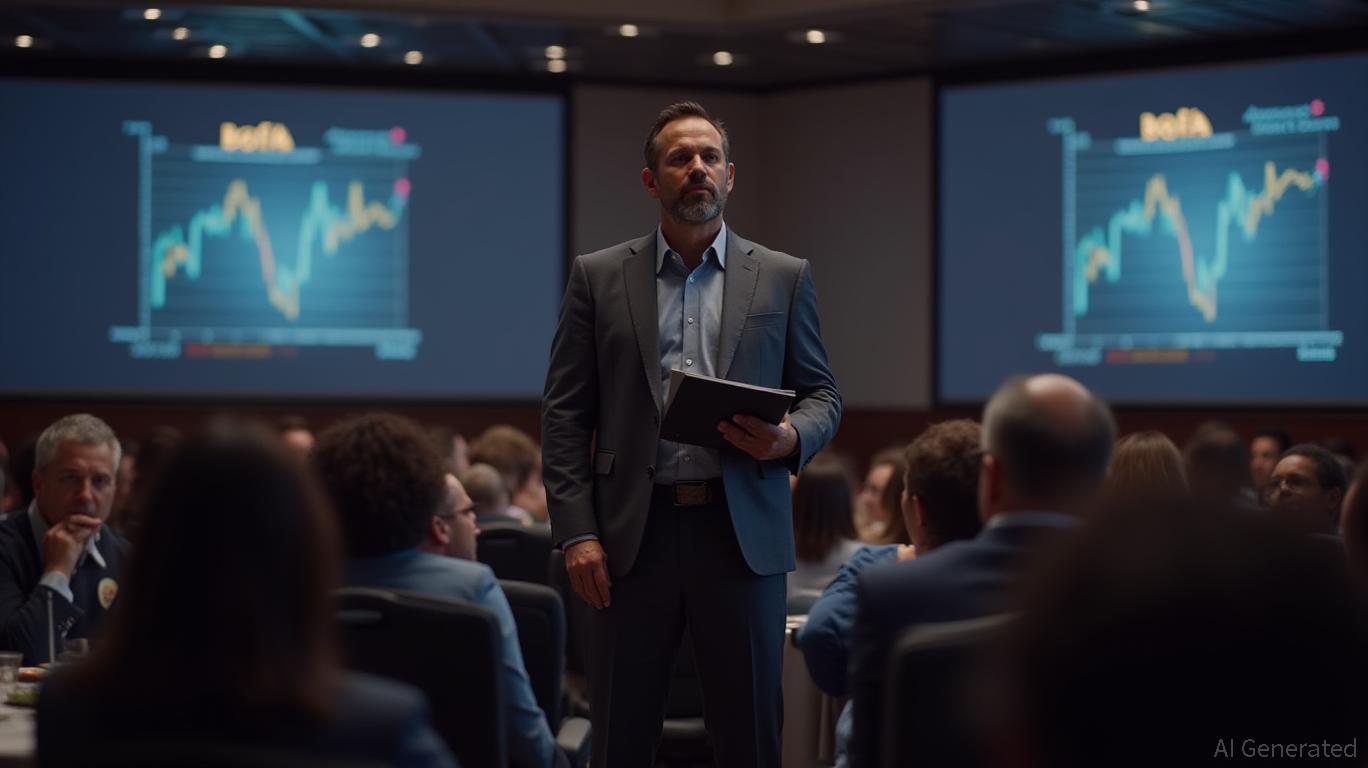
E-Sports
vivo launches V60, celebrated in style with Marian Rivera and celebrity guests

MANILA, PHILIPPINES – A spectacular new chapter in smartphone innovation was unveiled at Shangri-La The Fort as vivo Philippines officially launched the highly anticipated vivo V60, a flagship that fuses pro-level portrait photography with stylish design.
The event first showcased the V60’s stunning colorways, which are Berry Purple, Summer Blue, and Mist Gray, through a captivating runway performance led by Max Collins, Nicole Cordoves, and a group of elegant models.
Guiding the night of fashion, technology, and entertainment were charismatic hosts KC Montero and Nicole.
A decade of innovation: vivo’s 10th Anniversary
In her opening speech, Lulu Liu, Director of Brand Marketing at vivo Philippines, emphasized the brand’s culture of gratitude, reflection, and ambition.
“Tonight is more than an anniversary. It’s about looking back with gratitude, standing here with pride, and looking forward with confidence. The vivo V60 is our gift to you — a statement of how far we’ve come, and where we are going,” said Liu.
Franziska Hoffmann from ZEISS Photonics & Optics reinforced the brand’s partnership with vivo, highlighting how their collaboration has brought professional-grade portrait and telephoto technology to everyday users. She also highlighted that both ZEISS and vivo were brought together by their philosophy of putting users first.
Keshav Chugh from vivo Global, detailed the V60’s design inspiration, AI-powered imaging tools, and performance upgrades, showcasing how the smartphone transforms ordinary snapshots into extraordinary portraits.
Star-studded performance and games
The evening was not only about technology. It was about the people who brought it to life.
At the heart of it all is vivo’s brand ambassador, Marian Rivera, who surprised the audience with a dazzling dance number, later sharing her personal journey with vivo that connected seamlessly with the Kwentong Syete campaign.
Later on, they awarded the Kwentong Syete winners, wherein two received vivo TWS 3e, and one received a brand new vivo V60!
She became not just the ambassador of the night but the beating heart of the celebration, leading games, awarding winners, and bringing fans closer to the brand.
Max joined Marian after her striking runway showcase, returned with a spirited performance and game participation, showing that the V60 is not only sleek but also an emblem of lifestyle and self-expression.
Vinci of HORI7ON, commanding both stage and spotlight, led his team during interactive games and shared the magic of the V60’s telephoto power. At the same time, his group delivered unforgettable performances that ignited the room.
HORI7ON, as a whole group, also brought boundless energy, bridging technology with pop culture, and solidifying vivo’s bond with the new generation of Filipino fans.
Each star was more than a guest. Each was a storyteller who revealed how the vivo V60 turns moments into memories.
Marian Rivera’s iconic goddess entrance
Just when the crowd thought the night couldn’t get any more magical, the ballroom lights dimmed, and anticipation filled the air. The doors opened, and in a breathtaking moment of glamor, Marian made her stunning entrance as she officially introduced the vivo V60 to the crowd.
Marian walked with poise and elegance, embodying the spirit of the vivo V60 powerful, graceful, and timeless. As she reached the stage, she raised the vivo V60 high, sealing the device’s official launch in the Philippines. The audience erupted in applause, their cameras flashing as they captured the moment on their own vivo phones.
Marian’s entrance was a celebration of beauty, innovation, and the shared journey between vivo and its loyal Filipino fans over the past 10 years. It was the perfect crescendo to a night filled with excitement, artistry, and groundbreaking technology.
Official pricing and pre-order
To cap the night, Ms. Hazel Bascon, Vice President of Sales at vivo Philippines, revealed the official pricing:
- vivo V60 12GB+256GB – Php 28,999
- vivo V60 12GB+512GB – Php 30,999
Exclusive pre-order offers include up to Php 2,000 discounts, 0% installment plans, a vivo VIP Card with premium after-sales services, and complimentary vivo Buds. Pre-orders run until September 12, 2025 in all vivo concept stores, kiosks, and authorized dealers nationwide.
The article above is a paid press release from vivo.
E-Sports
MGM Resorts International BofA Securities 2025 Gaming and Lodging Conference Presentation

MGM Resorts International’s management team, including CEO Bill Hornbuckle and SVP of Corporate Finance Sarah Rogers, discussed the company’s recent transformations, global developments, and expansion plans, including those in New York, Japan, Macau, and the Middle East.
MGM Resorts International (MGM) has been making significant strides in both its domestic and international expansion strategies. The company’s recent announcements highlight its focus on growth and innovation, particularly in the gaming and entertainment sectors.
Intraday Share Decline and Interactive Game Show Launch
MGM Resorts International experienced a 1.72% intraday decline in its stock price following the announcement of its latest expansion plans. The company unveiled the launch of ‘Family Feud,’ a licensed adaptation of Fremantle’s classic game show, which will be streamed live and in real-time from a studio located on MGM Grand’s casino floor in Las Vegas. This is the first interactive game show of its kind to be broadcast live from a Las Vegas casino floor and is available to operators in regulated markets outside of the U.S. [1]
TKO Group Holdings Partnership Extension
In addition to the game show announcement, MGM Resorts International has extended its exclusive partnership with T-Mobile Arena through 2030. This extension reinforces the venue’s status as the official home for UFC® and WWE® in Las Vegas. The partnership is a significant move that underscores the company’s commitment to maintaining its position as a premier entertainment destination. [1]
Management Transformation and Global Expansion
The company’s management team, led by CEO Bill Hornbuckle and SVP of Corporate Finance Sarah Rogers, has been instrumental in driving these transformations. Hornbuckle and Rogers have emphasized the importance of global developments and expansion plans in New York, Japan, Macau, and the Middle East.
In New York, MGM is focusing on leveraging its brand to expand its presence in the city’s burgeoning gaming market. The company is also exploring opportunities in Japan, where it aims to tap into the growing interest in gaming and entertainment. In Macau, MGM is investing in its existing properties to enhance their appeal and attract more visitors. The Middle East, particularly Dubai, is another key market where MGM is looking to establish a strong foothold. [1]
Conclusion
MGM Resorts International’s recent announcements reflect a strategic shift towards innovation and global expansion. The company’s focus on interactive entertainment and strategic partnerships underscores its commitment to maintaining its position as a leading player in the gaming and entertainment industry. As the company continues to grow and adapt to changing market conditions, investors will be watching closely to see how these initiatives translate into financial performance.
References
[1] https://www.ainvest.com/news/mgm-resorts-international-shares-fall-1-72-intraday-announcing-interactive-game-show-extending-partnership-mobile-arena-2509/

E-Sports
Punahou leads list of schools with most all-time high school sports state championships

On the list of most all-time high school sports state championships, no program is close to catching all-time leader Punahou (Honolulu, Hawaii).
Punahou has 554 state championships, beating out No. 2 on the list La Salle Academy (Providence, R.I.) by nearly 200. The Buff ‘n Blue added 10 state titles last year and have averaged eight state championships per year since 1957.
Baylor (Chattanooga, Tenn.) and Barrington (R.I.) with 252 each, Essex (Essex Junction, Vt.) with 249 and 2024-25 MaxPreps Cup champion Cherry Creek (Greenwood Village, Colo.) with 248 are all within four state titles of each other. Meanwhile, Jenks (Okla.), Christian Brothers Academy (Lincroft, N.J.) and Bismarck (N.D.) are all tied with 207 titles.
The final 15 teams on the list are all within 21 state championships of each other.
The totals for each school come from school websites or state association. Non-athletic state championships (such as one-act play and literary) are not included, but unified and adaptive categories are included along with cheerleading, riflery and eSports. Tournament of champions titles are not included.
Most all-time state championships
1. Punahou (Honolulu, Hawaii)
Total: 554
Titles:
Girls Swimming — 57, Boys Tennis — 52, Boys Swimming — 50, Girls Tennis
— 49, Girls Track and Field — 40, Boys Volleyball — 40, Boys Track and
Field — 36, Girls Cross Country — 35, Boys Soccer — 22, Girls Water Polo
— 16, Baseball — 14, Boys Cross Country — 13, Girls Golf — 14, Girls
Soccer — 14, Boys Basketball — 12, Girls Basketball — 11, Boys Golf —
12, Canoe Paddling Boys — 9, Girls Volleyball — 9, Boys Wrestling — 8,
Boys Air Riflery — 7, Girls Canoe Paddling — 7, Canoe Paddling Mixed —
6, Girls Air Riflery — 6, ESports — 3, Girls Wrestling — 3, Girls Judo —
3, Football — 2, Boys Judo — 3, Softball — 1.
Source: State association website
2. La Salle Academy (Providence, R.I.)
Total: 358
Titles:
Boys Cross Country — 40, Boys Indoor Track — 37, Boys Outdoor Track —
30, Girls Indoor Track — 15, Girls Cross Country — 14, Girls Outdoor
Track — 19, Football — 17, Girls Swimming — 12, Girls Basketball — 14,
Gymnastics — 15, Girls Tennis — 16, Cheerleading — 11, Girls Soccer —
14, Boys Tennis — 13, Boys Lacrosse — 13, Boys Soccer — 13, Boys Ice
Hockey — 9, Girls Ice Hockey — 10, Baseball — 8, Boys Basketball — 8,
Wrestling — 6, Golf — 7, Boys Swimming — 5, Softball — 5, Boys
Volleyball — 4, Girls Volleyball — 4.
Source: Rhode Island High School Sports
3. Jackson Prep (Jackson, Miss.)
Total: 334
Titles:
Swimming — 48, Girls Tennis — 38, Boys Tennis — 35, Boys Track — 28,
Football — 26, Baseball — 23, Boys Basketball — 21, Boys Soccer — 20,
Boys Golf — 19, Girls Track — 18, Girls Soccer — 18, Girls Basketball —
12, Boys Cross Country — 11, Fastpitch Softball — 10, Girls Cross
Country — 7.
Source: School Athletic Department
4. Marquette (Mich.)
Total: 293
Titles:
Girls Cross Country — 35, Boys Tennis — 35, Boys Swimming — 32, Boys
Cross Country — 28, Girls Swimming — 28, Girls Track — 26, Boys Golf —
16, Boys Skiing — 16, Girls Skiing — 13, Boys Basketball — 13, Boys
Track — 14, Girls Tennis — 12, Gymnastics — 12, Girls Golf — 7, Ice
Hockey — 4, Boys Wrestling — 2, Girls Basketball — 1.
Source: State association website
5. Bishop Hendricken (Warwick, R.I.)
Total: 290
Titles:
Boys Outdoor Track — 48, Boys Indoor Track — 41, Boys Swimming — 38,
Boys Cross Country — 7, Baseball — 24, Boys Basketball — 21, Football —
21, Wrestling — 12, Boys Ice Hockey — 11, Boys Volleyball — 8, Boys
Tennis — 7, Boys Golf — 6, Boys Lacrosse — 5, Unified Volleyball — 6,
Boys Soccer — 4, Unified Basketball — 1.
Source: Rhode Island High School Sports
6. Westminster (Atlanta, Ga.)
Total: 282
Titles:
Boys Swimming — 30, Girls Swimming — 28, Girls Cross Country — 34, Boys
Cross Country — 31, Boys Tennis — 26, Girls Tennis — 24, Girls Soccer —
16, Boys Soccer — 16, Boys Golf — 12, Girls Volleyball — 9, Wrestling —
8, Boys Lacrosse — 7, Boys Track — 7, Girls Track — 7, Adapted Boys
Track and Field — 7, Adapted Girls Track and Field — 7, Baseball — 4,
Girls Lacrosse — 4, Football — 3, Boys Basketball — 1, Gymnastics — 1.
Source: State association website
T7. Baylor (Chattanooga, Tenn.)
Total: 252
Titles: Baseball — 5, Boys Bowling — 1, Crew — 7, Boys Cross Country — 8, Girls Cross Country — 7, Football — 2,
Fencing — 17, Boys Golf — 20, Girls Golf — 20, Boys Lacrosse — 1, Boys
Soccer — 9, Girls Soccer — 11, Softball — 17, Boys Swimming — 30, Girls
Swimming — 19, Boys Tennis — 17, Girls Tennis — 14, Boys Track — 2,
Girls Track — 7, Volleyball — 4, Wrestling — 20, Wrestling Duals — 14.
Source: School website
T7. Barrington (R.I.)
Total: 252
Titles:
Boys Cross Country — 25, Boys Golf — 24, Boys Outdoor Track — 21, Boys
Indoor Track — 18, Girls Swimming — 15, Girls Cross Country — 14,
Football — 13, Boys Soccer — 13, Girls Lacrosse — 12, Girls Indoor Track
— 12, Girls Outdoor Track — 10, Boys Tennis — 10, Field Hockey — 9,
Boys Ice Hockey — 7, Unified Basketball — 6, Girls Tennis — 6, Girls
Basketball — 6, Girls Ice Hockey — 5, Boys Swimming — 5, Softball — 4,
Girls Volleyball — 3, Unified Volleyball — 3, Girls Soccer — 3, Baseball
— 2, Boys Basketball — 2, Cheerleading — 2, Gymnastics — 1, Boys
Volleyball — 1.
Source: Rhode Island High School Sports
9. Essex (Essex Junction, Vt.)
Total: 249
Titles:
Girls Outdoor Track — 30, Gymnastics — 29, Boys Ice Hockey — 18, Boys
Cross Country — 18, Boys Outdoor Track — 18, Girls Cross Country — 18,
Boys Indoor Track — 13, Field Hockey — 9, Girls Basketball — 9, Girls
Ice Hockey — 10, Softball — 8, Boys Soccer — 8, Girls Indoor Track — 9,
Football — 7, Boys Golf — 7, Baseball — 6, Girls Soccer — 6, Girls
Volleyball — 6, Boys Tennis — 4, Girls Nordic — 4, Wrestling — 3, Boys
Basketball — 3, Boys Lacrosse — 3, Girls Golf — 2, Girls Lacrosse — 1,
Boys Nordic — 1.
Source: State association website
10. Cherry Creek (Greenwood Village, Colo.)
Total: 248
Titles:
Boys Tennis — 47, Girls Tennis — 39, Girls Swimming — 31, Football —
14, Boys Swimming — 14, Girls Golf — 11, Girls Lacrosse — 10, Baseball —
10, Spirit — 9, Boys Golf — 9, Boys Lacrosse — 8, Boys Soccer — 7,
Girls Volleyball — 6, Boys Cross Country — 5, Boys Gymnastics — 5, Girls
Cross Country — 4, Ice Hockey — 4, Gymnastics — 3, Field Hockey — 3,
Girls Soccer — 2, Girls Track — 2, ESports — 2, Boys Basketball — 1,
Girls Basketball — 1, Boys Wrestling — 1.
Source: School website
11. Edina (Minn.)
Total: 210
Titles:
Girls Tennis — 37, Boys Tennis — 25, Girls Swimming — 19, Boys Swimming
— 16, Boys Ice Hockey — 14, Girls Golf — 12, Boys Alpine Skiing — 10,
Girls Alpine Skiing — 10, Boys Golf — 10, Cheerleading — 8, Girls Ice Hockey — 5, Girls
Cross Country — 4, Boys Soccer — 4, Girls Gymnastics — 4, Boys
Basketball — 3, Boys Track — 3, Boys Badminton — 3, Boys Gymnastics — 2, Girls Soccer — 2,
Nordic Skiing — 2, Baseball — 2, Adaptive Floor Hockey — 2, Adaptive
Soccer — 2, Boys Cross Country — 2, Football — 6, Boys Lacrosse — 1, Girls Basketball — 1,
Robotics — 1.
Source: School website
T12. Jenks (Okla.)
Total: 207
Titles:
Boys Swimming — 23, Girls Tennis — 20, Football — 18, Boys Tennis — 17,
Girls Golf — 16, Girls Cross Country — 16, Boys Cross Country — 15,
Girls Swimming — 15, Girls Soccer — 10, Boys Soccer — 8, Girls Track and
Field — 8, Boys Golf — 8, Boys Track and Field — 8, Girls Basketball —
5, Baseball — 4, Cheerleading — 3, Slowpitch Softball — 1, Girls
Volleyball — 6, Boys Volleyball — 5, ESports — 1.
Source: State association website
T12. Christian Brothers Academy (Lincroft, N.J.)
Total: 207
Titles:
Boys Indoor Track Relays — 33, Boys Cross Country — 33, Boys Indoor
Track — 27, Boys Track — 28, Boys Tennis — 24, Boys golf — 16, Boys Swimming — 11, Boys Ice Hockey — 9, Boys
Soccer — 8, Boys Basketball — 8, Boys Rugby — 4, Boys Sailing — 3,
Baseball — 3.
Source: School website
T12. Bismarck (Bismarck, N.D.)
Total: 207
Titles: Volleyball — 2, Football — 10, Girls Golf — 1, Boys Cross Country — 20, Girls
Cross Country — 11, Boys Soccer — 5, Boys Tennis — 1, Girls Swimming — 13, Boys Basketball — 11, Girls Basketball — 2, Boys Wrestling — 45,
Dual Meet Wrestling — 19, Girls Wrestling — 2, Girls Dual Meet Wrestling — 3, Girls Ice Hockey — 1, Boys Ice Hockey — 1, Gymnastics — 4,
Baseball — 2, Softball — 1, Girls Tennis — 2, Boys Golf — 7, Girls
Soccer — 2, Boys Track — 35, Girls Track — 7.
Source: Western Dakota Association website
15. Albuquerque Academy (Albuquerque, N.M.)
Total: 203
Titles:
Boys Tennis — 28, Boys Swimming — 25, Girls Swimming — 25, Boys Track
and Field — 18, Boys Cross Country — 16, Girls Tennis — 13, Girls Soccer
— 11, Boys Golf — 12, Boys Soccer — 11, Boys Basketball — 10, Girls
Track and Field — 8, Girls Cross Country — 8, Girls Golf — 8, Wrestling —
5, Baseball — 4, Girls Volleyball — 1.
Source: State association website
16. St. Xavier (Louisville, Ky.)
Total: 202
Titles:
Boys Swimming — 61, Boys Tennis — 29, Boys Cross Country — 24, Boys
Golf — 21, Boys Soccer — 19, Boys Track and Field — 15, Football — 15,
Baseball — 9, Boys Basketball — 4, Boys Wrestling — 3, Boys Indoor Track
— 2.
Source: School website
T17. Campbell County (Gillette, Wyo.)
Total: 200
Titles:
Girls Cross Country — 22, Girls Swimming — 19, Boys Cross Country — 17,
Girls Basketball — 17, Boys Swimming — 16, Wrestling — 16, Boys
Basketball — 16, Boys Track and Field — 15, Girls Track and Field — 12,
Boys Tennis — 10, Girls Golf — 8, Girls Indoor Track — 7, Girls
Volleyball — 6, Girls Tennis — 4, Football — 4, Boys Golf — 4, Boys
Indoor Track — 3, Girls Soccer — 2, Boys Soccer — 1, Softball — 1.
Source: School website
T17. Mountain Brook (Birmingham, Ala.)
Total: 200
Titles:
Girls Tennis — 34, Boys Tennis — 29, Girls Cross Country — 27, Girls
Indoor Track and Field — 24, Boys Cross Country — 17, Girls Track and
Field — 14, Boys Golf — 10, Girls Golf — 10, Girls Volleyball — 7, Boys
Basketball — 6, Girls Swimming — 6, Girls Soccer — 5, Boys Indoor Track —
4, Football — 2, Boys Soccer — 1, Boys Swimming — 1, Boys Wrestling —
1.
Source: Alabama High School Football History
19. Carmel (Ind.)
Total: 198
Titles:
Girls Swimming — 40, Boys Swimming — 25, Girls Cross Country — 20, Boys
Cross Country — 18, Girls Soccer — 15, Boys Tennis — 15, Girls Tennis —
13, Football — 9, Boys Golf — 7, Boys Basketball — 5, Boys Track — 5,
Cheerleading — 6, Girls Golf — 4, Girls Lacrosse — 4, Boys Soccer — 4,
Softball — 2, Girls Track — 2, Volleyball — 1, Boys Lacrosse — 1, Unified Flag Football — 1, Girls
Basketball — 1.
Source: School website
20. Jesuit (Portland, Ore.)
Total: 195
Titles:
Boys Tennis — 23, Girls Tennis — 17, Girls Cross Country — 16, Boys
Soccer — 17, Girls Soccer — 16, Girls Swimming — 13, Boys Golf — 10,
Boys Swimming — 11, Girls Volleyball — 9, Boys Basketball — 7, Boys
Cross Country — 8, Football — 6, Girls Golf — 6, Girls Track — 7, Girls
Skiing — 4, Boys Track — 4, Coed Skiing — 4, Girls Lacrosse — 4, Boys
Lacrosse — 3, Boys Skiing — 3, Softball — 2, Baseball — 2, Girls
Basketball — 1, Cheerleading — 1, Boys Ice Hockey — 1.
Source: School website
T21. South Kingstown (Wakefield, R.I.)
Total: 193
Titles:
Girls Outdoor Track — 39, Boys Tennis — 20, Boys Outdoor Track — 20,
Girls Cross Country — 20, Boys Cross Country — 9, Girls Indoor Track —
9, Boys Basketball — 8, Football — 9, Girls Soccer — 8, Girls Swimming —
7, Gymnastics — 6, Boys Swimming — 6, Baseball — 4, Boys volleyball —
5, Boys Soccer — 4, Girls Lacrosse — 3, Wrestling — 3, Boys Ice Hockey —
2, Girls Tennis — 2, Girls Basketball — 2, Field Hockey — 1, Softball —
1, Boys Lacrosse — 1, Girls Ice Hockey — 1, Girls volleyball — 1, Boys
Indoor Track — 1, Unified Basketball — 1.
Source: Rhode Island High School Sports
T21. Salesianum (Wilmington, Del.)
Total: 193
Titles:
Boys Cross Country — 42, Boys Swimming — 41, Boys Soccer — 22, Boys
Track — 21, Boys Indoor Track — 15, Boys Lacrosse — 15, Boys Golf — 13,
Football — 8, Baseball — 7, Boys Basketball — 3, Boys Tennis — 2, Boys
Volleyball — 2, Boys Wrestling — 2.
Source: State association website
T23. St. Paul’s Episcopal (Mobile, Ala.)
Total: 189
Titles:
Girls Track and Field — 25, Girls Indoor Track — 23, Girls Tennis — 19,
Girls Cross Country — 19, Boys Track — 17, Girls Volleyball — 16, Boys
Tennis — 14, Boys Indoor Track — 12, Boys Golf — 11, Boys Cross Country —
9, Baseball — 6, Football — 5, Boys Swimming — 4, Girls Swimming — 4,
Girls Soccer — 2, Boys Soccer — 1, Girls Basketball — 1, Girls Golf — 1.
Source: Alabama High School Football History
T23. Champlain Valley Union (Hinesburg, Vt.)
Total: 189
Titles:
Boys Basketball — 1, Girls Basketball — 9, Boys Ice Hockey — 6, Girls
Ice Hockey — 1, Baseball — 8, Boys Lacrosse — 14, Girls Lacrosse — 4,
Football — 2, Field Hockey — 4, Boys Soccer — 21, Girls Soccer — 21,
Boys Tennis — 6, Girls Tennis — 14, Boys Alpine — 4, Boys Nordic — 8,
Girls Alpine — 5, Girls Nordic — 7, Gymnastics — 3, Boys Golf — 13,
Girls Golf — 2, Boys Cross Country — 7, Girls Cross Country — 21, Boys
Indoor Track — 2, Girls Indoor Track — 2, Boys Outdoor Track — 1, Girls
Outdoor Track — 2, Boys Volleyball — 4, Girls Volleyball — 2, Girls
Ultimate — 1
Source: State association website
25. Marist (Atlanta, Ga.)
Total: 188
Titles:
Girls Tennis — 28, Girls Cross Country — 25, Girls Swimming — 13, Boys
Swimming — 10, Boys Tennis — 19, Baseball — 14, Boys Cross Country — 13,
Girls Soccer — 12, Boys Golf — 11, Girls Volleyball — 10, Adapted Girls
Track and Field — 5, Girls Track — 5, Boys Track — 4, Adapted Boys
Track and Field — 4, Football — 3, Boys Basketball — 3, Girls Basketball
— 2, Fastpitch Softball — 2, Boys Soccer — 2, Wrestling — 2, Boys
Lacrosse — 1.
Source: State association website
E-Sports
8 Steps to Strengthen Esports Recruitment in Higher Education



At Montgomery County Community College, we’ve seen this trend unfold firsthand. As an esports early adopter, our program has grown significantly over the years. Starting with 12 students when the program launched in spring 2020, we now have 170 participants in the program across our campuses. Our MCCC Mustangs eSports team recently won a fourth NJCAA esports title, making our program a top destination for community college recruits and esports fans in Pennsylvania and beyond.
For schools interested in growing their offering, here are eight steps to attract athletic talent and draw students into the program:
- Invest in the latest tech: Developing a robust technology infrastructure is paramount to recruitment success. Student-athletes want to see top-of-the-line consoles, controllers, headsets and equipment that will help them reach their full potential. Gaming technology should be on its own LAN with a direct connection to high-speed internet to limit potentially disastrous interruptions during gameplay. Top-of-the-line computer systems should have 32-plus gigabytes of RAM, multiple terabytes of storage and the ability to support all the latest games.
- Provide exciting and engaging viewership opportunities: Your technology investments should not stop at the gaming setups. Colleges need to make student-athletes feel like professionals by showcasing their talents for all to see through streaming services and in-person events. Establish a professional-looking streaming platform and give students opportunities to commentate on the performances. Invest in microphones, webcams, audio splitters and popular streaming platforms to elevate production values further. These streams will build buzz across campus and showcase your team’s talents to the public.
RELATED: What’s next for esports in higher education?
- Create engaging gaming spaces: Beyond the technology, higher education institutions should create compelling physical spaces in which esports teams can practice and compete. These areas should be highly visible to the rest of the school and be arranged in ways that facilitate in-person viewing. The facilities should give student-athletes a space to showcase their skills and build awareness of the program across campus. Also, a simple but often overlooked aspect of building an esports team is buying jerseys for student-athletes to provide the team with a unified look.
- Hire top tech talent: Optimizing and maintaining esports facilities and equipment will require sophisticated technology talent. Like any sport, it is important to hire coaches and support staff with knowledge of the equipment required for competitive gameplay. Serious programs should also consider hiring IT staff with a gaming background to further support the program as it grows.
- Build your social presence: Esports recruits almost always ask about the school’s social media following. Student-athletes want to make sure their talents will be captured and showcased on social media. This is one of the most important ways for student-athletes to build their personal brands and set themselves up for a potential career in esports. They want confidence that the school they play for will help them gain public awareness, build a following and cultivate a reputation in the sport.
- Provide support for athletes: Becoming a top esports student-athlete requires time and training. Schools can make the rest of their lives easier by offering support. This can include free tutoring sessions, flexible class scheduling, extra meal plans and mentoring opportunities — anything that makes it easier for student-athletes to compete at their best.
- Promote inclusivity: Esports are the most inclusive sport and should be positioned that way to prospective student-athletes. By removing barriers to entry and creating an environment of inclusivity, schools can broaden their pool of potential talent. When constructed in ways that promote diversity and inclusion, educators can create esports programs that are built to last. Not only will the program provide a safe space for students to socialize, compete, learn and grow, it will create a foundation for students to come together, build community and create a culture of belonging that improves overall student well-being.
- Highlight career pathways: With careers available in game design, the business of gaming, esports coaching and more, the opportunities following graduation are seemingly endless. To attract esports talent, colleges should do all they can to prepare and provide pathways to these careers for their student-athletes. This can even include building esports production, promotion and management courses into a school’s curriculum.
Technology Is the Foundation for Growth
Laying a solid technology foundation is essential for any higher-education institution looking to develop a leading esports program. Without next-generation technology, your athletes won’t be able to compete at the highest levels, engagement will lag and recruits are unlikely to seriously consider your program. Esports programs are a legitimate attraction, proven to boost enrollment, and are worth the financial investment — leading to lasting value and enrichment for both the college and its students.
South_agency/Getty Images
E-Sports
College Students Get New Free Marvel Rivals Skins in Season 4 Perks Program
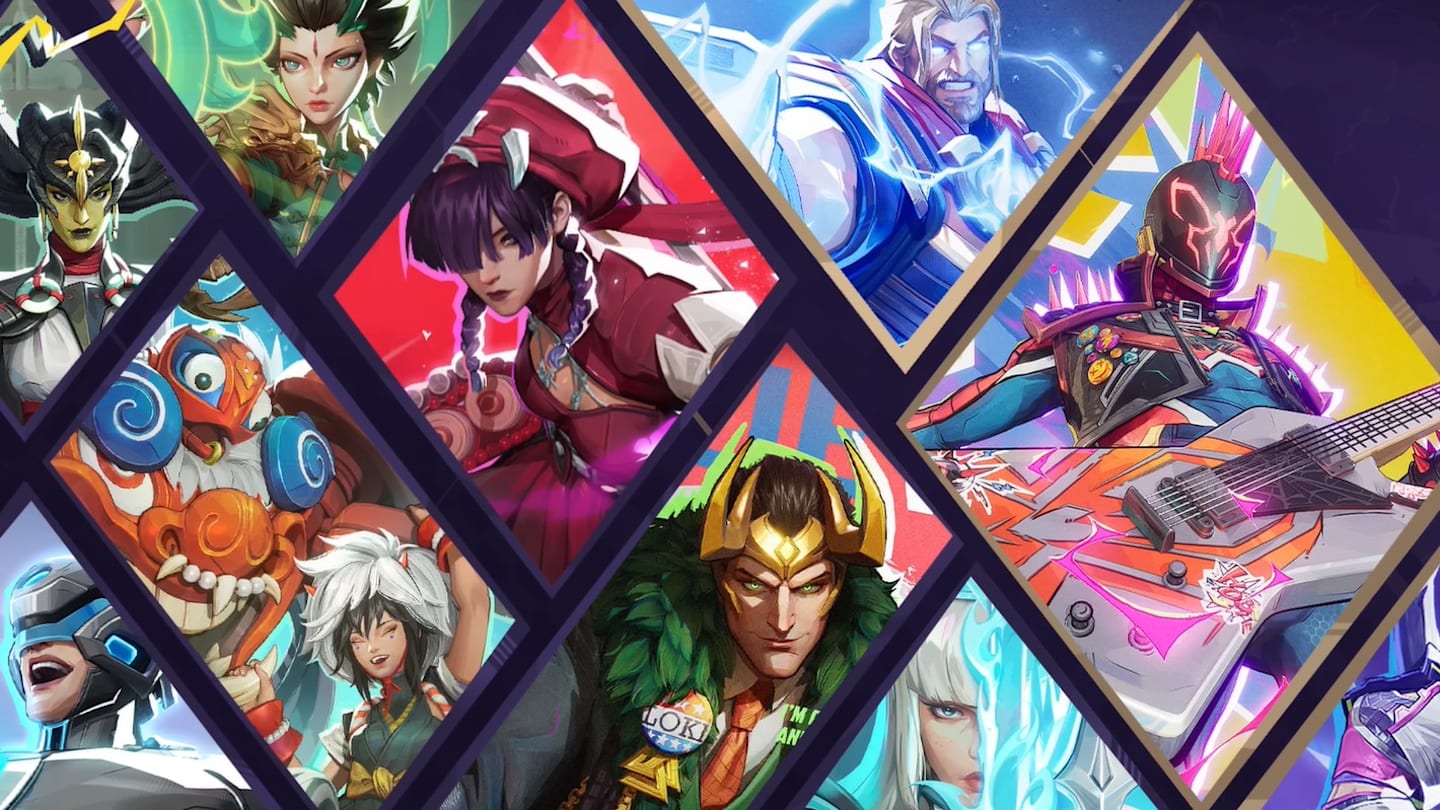
With more news surrounding Marvel Rivals’ upcoming update coming out this week, we got our first look at the next batch of College Perk Skins available at the start of Season 4 in the latest Dev Vision Vol. 9. The costume trials themselves are unique this time around, but some of them belong to characters part of the previous collection.
Introduced in Season 3, Marvel Rivals began the College Perks program, allowing students to access 10 paid skins and their MVPs for free during a trial period. Now that the first collection, which lasted through Season 3 and Season 3.5, is coming to an end, the new College Perk costumes will be available starting Season 4 and will last throughout it and Season 4.5.
Here’s everything you need to know about the new College Perks program, what it contains, and how to sign up for it.
Similar to last season, college students can test out 10 paid costumes (3 Legendary, 7 Epic) and their unique MVP animations for free in Marvel Rivals Season 4 and 4.5. Once successfully verified, you can head over to the Heroes tab and manually select these trial skins so they appear on the character preview and pre-round screen.
New College perk skins in Marvel Rivals! pic.twitter.com/794vJF72JQ
— Rivals Leaks (@Rivals_Leaks) September 3, 2025
Here’s a list of all the costumes in the new College Perks program:
Related Article: The Marvel Rivals Summer Swimsuit Skin You Wanted is Coming in Season 4
Players can redeem the Marvel Rivals College Perks through the in-game client by following a few simple steps:
- Open Marvel Rivals and go to ‘Settings.’
- Click on the ‘Community’ option.
- Click on the ‘Find College Perks’ option.
- Click on the yellow ‘Details’ / ‘Activation’ button.
- Fill in your student email address to fully verify your student status.
- Click on the grey ‘Get Verification Code’ button in the bottom-right.
- Copy the code in your student email’s inbox and paste it into the ‘Enter verification code’ box.
- Select ‘Verify’ in the bottom-left corner of the pop-up.
Related Article: Marvel Rivals Season 4 Leaks Tease Two New Characters
After this, the process should be complete, and each Marvel Rivals College Perks reward will immediately appear in the player’s inventory. Remember to check both your student email’s Inbox and Spam folders for the code.
If you already verified your student ID for the Season 3 College Perks program, you will have to re-verify to access the new trial costumes.
Marvel Rivals has an official list of approved countries and universities eligible for the College Perks Program (link here). However, you might still be able to avail the perks even if your university or country is not on the list. Many players reported gaining access to the College Perks even though their institution wasn’t listed, so it’s always worth a shot.
Alternatively, if your university is not listed, you can contact the Rivals support team and ask them to add your institution to the list in the next update cycle.
💡If your university is not listed in the academic email accounts supported by College Perks currently, please reach out to our support team, and they will work to add your university to the list. The list is updated weekly.
👉To access support, click the SETTINGS button in the…
— Marvel Rivals (@MarvelRivals) July 11, 2025
If your College Perks verification process is not working, it’s possible your school may not be on the Marvel Rivals academic list. Similarly, the verification process will not work if you use a non-school email or if there are any typos, so make sure to double-check your spelling when entering the details.
The College Perks program is a solid initiative for younger people to interact with the game’s monetized side after giving them a taste of several Epic and Legendary skins. As a result, they can help support the game and fund future events, including competitive tournaments like IGNITE and MRC.
Beyond the trial costumes, the Dev Vision Vol. 9 also gave us a glimpse into the new meta for Season 4 of Marvel Rivals. Many S-tier characters with incredible stats at pro play, like Emma Frost and Luna Snow, are being toned down. On the opposite end, underperforming heroes like Thor and Peni Parker are to receive notable buffs to make them more competitively viable.
-

 Rec Sports3 weeks ago
Rec Sports3 weeks agoFirst Tee Winter Registration is open
-

 Rec Sports2 weeks ago
Rec Sports2 weeks agoFargo girl, 13, dies after collapsing during school basketball game – Grand Forks Herald
-

 Motorsports2 weeks ago
Motorsports2 weeks agoCPG Brands Like Allegra Are Betting on F1 for the First Time
-

 Motorsports3 weeks ago
Motorsports3 weeks agoF1 Las Vegas: Verstappen win, Norris and Piastri DQ tighten 2025 title fight
-

 Sports2 weeks ago
Sports2 weeks agoTwo Pro Volleyball Leagues Serve Up Plans for Minnesota Teams
-

 Sports2 weeks ago
Sports2 weeks agoUtah State Announces 2025-26 Indoor Track & Field Schedule
-

 Sports2 weeks ago
Sports2 weeks agoSycamores unveil 2026 track and field schedule
-

 Motorsports2 weeks ago
Motorsports2 weeks agoRedemption Means First Pro Stock World Championship for Dallas Glenn
-

 Motorsports2 weeks ago
Motorsports2 weeks agoJo Shimoda Undergoes Back Surgery
-

 Sports2 weeks ago
Sports2 weeks agoTexas volleyball vs Kentucky game score: Live SEC tournament updates


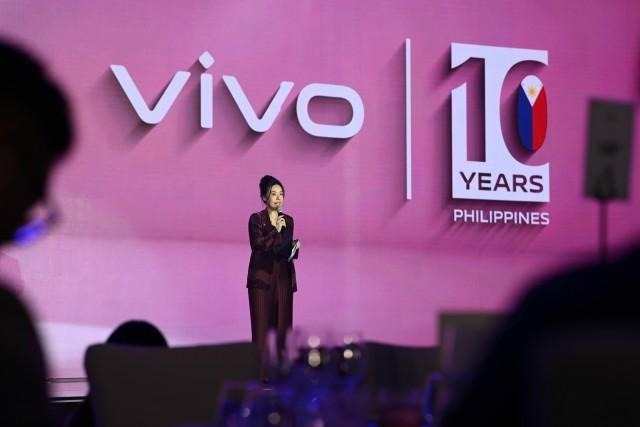
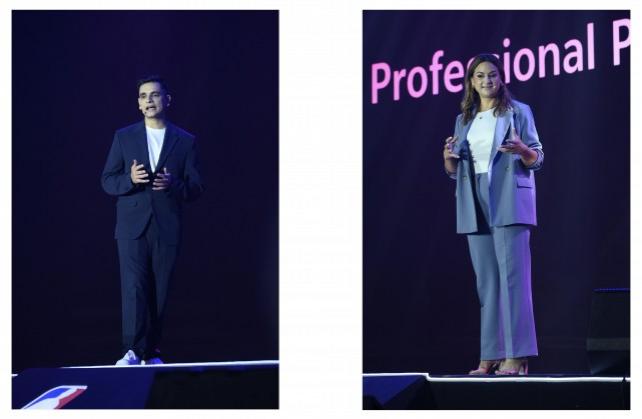
_2025_09_05_07_57_40.jpg)
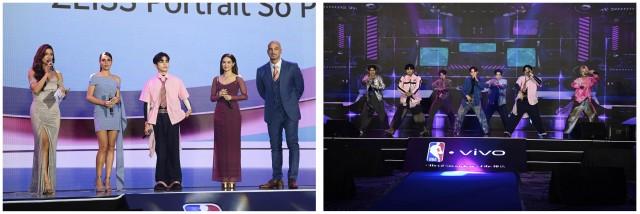
_2025_09_05_08_03_08.jpg)
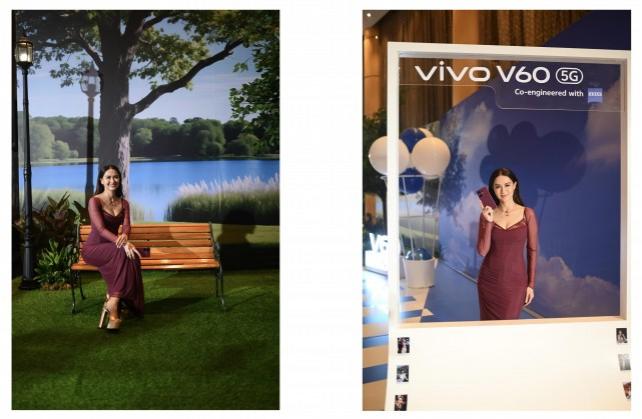
_2025_09_05_07_59_29.jpg)























